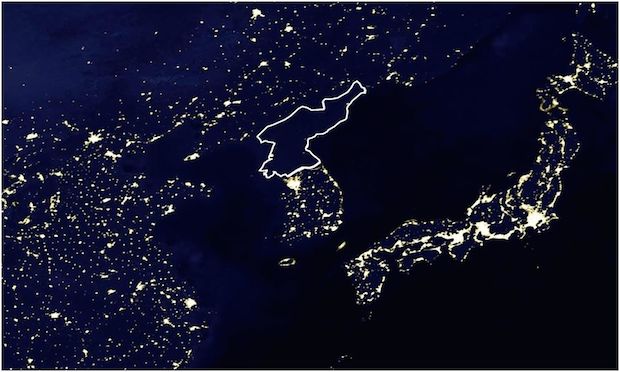Sanctions Take Entire Nations Hostage

William Hartung calls attention to the recent report on the humanitarian consequences of North Korea sanctions:
Henri Feron, a co-author of the report and a senior fellow at the Center for International Policy, has summed up the case as follows: “sanctions in their current form may be contrary to international law, in particular humanitarian and human rights norms. Sanctions also raise moral questions, as they effectively take the entire country’s population hostage.” [bold mine-DL]
All of the “maximum pressure” campaigns have two things in common: they strangle the civilian population and they completely fail to alter the targeted government’s behavior. Our policies take whole nations hostage, and it is that very hostage-taking that encourages determined resistance to our government’s demands. Because the targeted governments refuse to make concessions, our government takes out its frustrations on the people in vindictive punishment. Our policies treat the people in these countries as if they were expendable and don’t matter at the same time that our political leaders mouth platitudes about being on their side. This keeps happening because many of our policymakers don’t take the human costs of sanctions seriously and because there is never any accountability for causing these people greater hardship and deprivation. Sanctions are a “low-cost” option for the U.S. while the burden of the sanctions is borne by the people who already have to endure oppressive political systems, corruption, and mismanagement. The civilians of these countries are effectively made to pay a steep tax for our government’s insistence on meddling in their affairs.
Even though the civilian population is directly targeted by broad, sector-wide sections, the harm done to them is always excused by saying that it is “unintended.” But how can it be unintended when we know in advance that this is what sweeping sanctions do to ordinary people? It’s as if we were waging an indiscriminate bombing campaign and then claiming that we didn’t mean to kill civilians. The indiscriminate attacks guaranteed that outcome, so we can’t claim that we didn’t mean to do it. It is very much the same in economic warfare. Choosing to wage a relentless economic war against another country means choosing to deny ordinary people access to food and medicine that they would have otherwise been able to get. It means choosing to cause more suffering and in some cases it means causing deaths that could have been prevented. After decades of inflicting these punishments on other countries, we cannot claim that we don’t know what we’re doing to them.
The U.S. needs to move away from its frequent use of economic warfare. It should not be the policy of our government to inflict collective punishment on civilian populations. We need to recognize that when we do this we achieve nothing except to tighten the other government’s grip on the country and impoverish innocent civilians. We need to stop taking entire nations hostage.
Comments